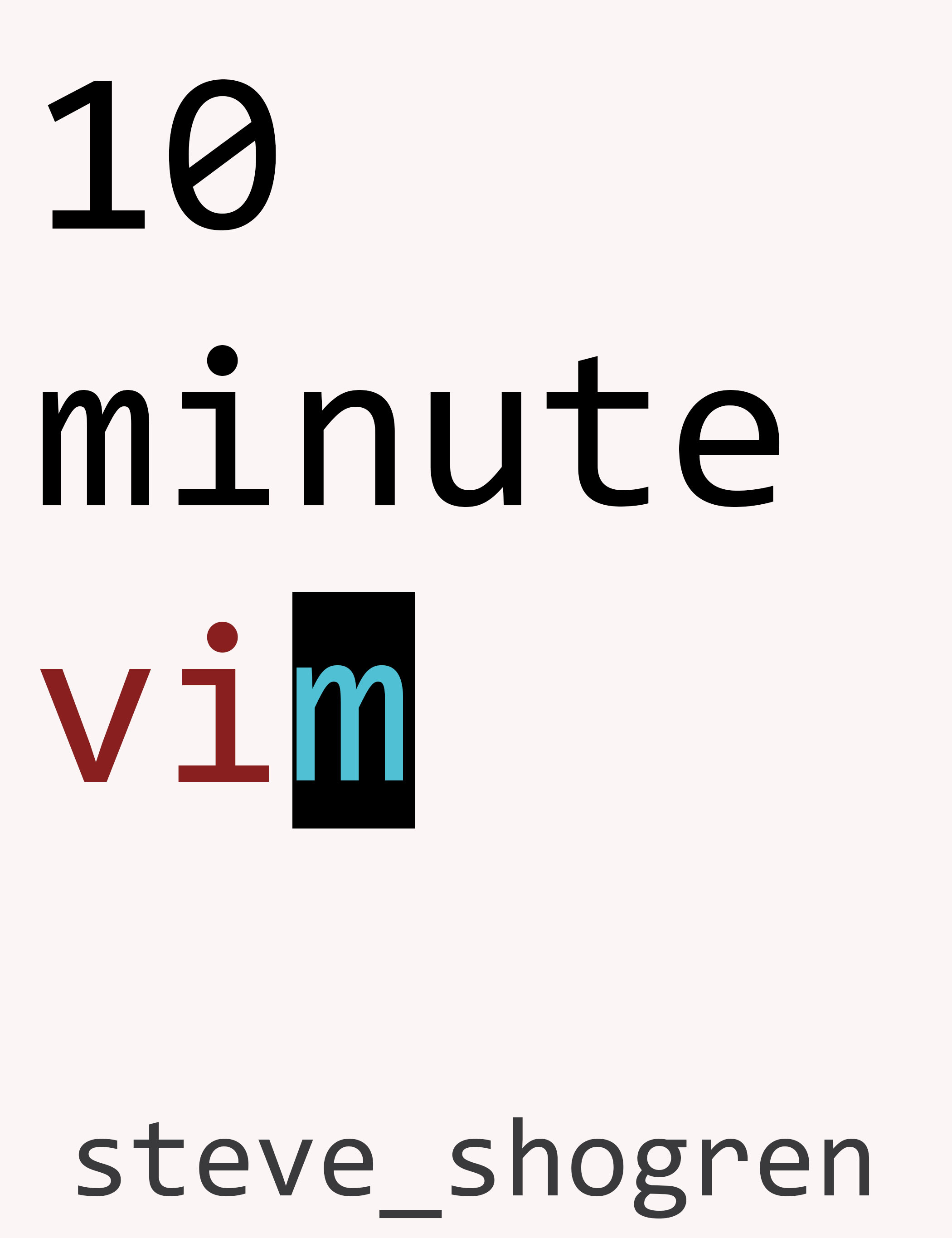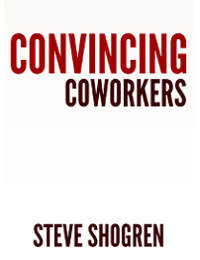Edit: As a supplement to this: check out my favorite books.
“It’s my first job, what book should I read first?”
I’ve been asked this question many times. Even mid and senior level developers I’ve known sometimes struggle with this question.
If you want to be truly great, you have to read technical books and white papers, and you have to learn new programming languages. You could figure the content out yourself from first principles, but you will be about 50 years behind those who just read the books. Additionally, if you stick to a certain language, you are limiting yourself to thinking about problems in only one way.
Just like with adding new features to a project, you should prioritize your learning.
I’d start by getting into the mindset that you will need roughly a decade and at least ten thousand high quality hours to become a master programmer. To be able to get that many high-value hours, you will need to carefully select your jobs, and constantly be learning new things that actually make you a better developer.
Languages
"A language that doesn't affect the way you think about programming,
is not worth knowing." - Alan Perlis
I agree with other developers who assert that a language is not worth learning unless it teaches you something new and mind-expanding. There are exceptions of course. Maybe you want to switch stacks to get an awesome high-value job. By all means, learn the new stack.
If you want to follow the extremely good advice of others and learn one new programming language a year, make each one count. For example, if you are a Ruby guy, it is safe to say you will learn nothing of really any mind-expanding value if you try to learn PHP, Python, JavaScript, or Perl.
Same for the family of Java, C++, C#, or VB.NET. One of those is plenty.
Instead aim for languages that will really expand your thought process. I like the advice given by Peter Norvig:
"Learn at least a half dozen programming languages. Include one
language that supports class abstractions (like Java or C++), one that
supports functional abstraction (like Lisp or ML), one that supports
syntactic abstraction (like Lisp), one that supports declarative
specifications (like Prolog or C++ templates), one that supports
coroutines (like Icon or Scheme), and one that supports parallelism
(like Sisal)."
I would add to that my own personal list: a pure language that forces you to use monads for controlling side-effects (like Haskell), and a language that allows for dependent types (like Idris or Coq).
If you find yourself saying, “wow, in Python, you have to put a colon at the end of the function signature line, unlike in Ruby, that blows my mind”, or “wow, in Java, the String keyword is uppercase instead of lowercase!” chances are you are getting a very low return for your investment of time.
What is important about a new language is not a new syntax. A new syntax is just cruft that gets in the way of the new concepts. A new concept might be closures. If you have always worked in Java, a closure will really expand your mind. Or macros. If you have never seen macros, the concept alone is completely foreign, not just the syntax. That is where the value is. A good test if you are learning something new is if you have to research what the concept even means, without even needing to see the syntax first. For example, when I started learning monads, I didn’t even need to see the syntax for how Haskell does them, I didn’t even understand the concept at all, so I could read pretty much anything about the concept and get value out of it. That is the high value content.
Frameworks
I would say very few frameworks are going to expand your mind in a way that is worth the effort to learn them. Some very select frameworks can cause you to think of a problem in a novel way and thus expand your mind (off the top of my head: React.js, Cycle.js, Core.Async, Akka, Datomic) but those are very few and far between.
Obviously, in production use, frameworks have their place, and they can provide an immense boost to your day-to-day productivity and safety, but very few overall will expand your mind in such a way that would make you better at the craft. It is not hard to reason why. A framework can only do what is possible in the language. If the language is only so powerful, the framework cannot be more powerful than that. You will be using tools that you could’ve written yourself with your current skill level, but you won’t even get the benefit of writing it yourself. Hopefully, those tools will be safer and save you a lot of time, but saved time cranking out widgets at work will not directly cause you to better understand programming.
Paradigms
It is fashionable these days to get into functional programming. If you haven’t learned a language that supports a functional paradigm, I highly recommend that as a good place to start. That being the case, don’t forget to add a logic, a literate, and a declarative programming language to your list too (you have ten years remember, you’ll need a list). Why not pile on a stack based language too?
Libraries
While it is important to be aware of the libraries in your space, I would say these often provide the least mind-expanding opportunities. A library, much like a framework, is usually constrained by the power of the language. In most languages, libraries are just convenience abstractions at or below the same abstraction layer as the rest of your code. I would never consider doing my day-to-day work without the full power of available libraries, but they are not going to help me think any better about the work.
“Meta” books
A vast number of books exist that attempt to impart something of a “mindset” for the developer. Usually, the author is retelling his experiences, which can be entertaining, but of limited reuse. The best meta books are those that use actual research and data to try to explain our industry. Books like Peopleware, Code Complete, and Pragmatic Programmer are great in this regard. These best books can cause you to see the creation of software artifacts with a totally different light: e.g. I remember first reading about using a programming language to generate automatically the source files for a given project. At the time for me, it was revolutionary.
Pattern Books
I lately have come to think “pattern books” like Domain Driven Design, Design Patterns, Patterns of Enterprise Application Architecture, Refactoring, etc are just a way to try to replicate missing features in a language of a lower power. These seem to be written for entirely Java and C#, and are mostly complex solutions to complex problems created by the lack of power of the language. Apparently, I am not alone: Are Design Patterns Missing Language Features?
That being said, I think some parts of these books are helpful, specifically, the ubiquitous language ideas from Domain Driven Design. If your team has decided on always using the terms from a certain book, and you are the only person who does not know them, I do recommend at least skimming it just to ensure smooth communication.
Suggestions
Edit: I’ve consolidated my list into a separate page of my favorite books. If you are looking to expand your mind, I’d check out the bold ones first.
Wrap up
It takes courage to step outside your comfort zone and learn something new. You might be the only person learning something new on your team. That is ok! Don’t worry about “converting” everyone else to the path of learning, and do not make fun of them or the only language they know. (Developers who only know one language take any comment good or bad about “their” language as a comment about themselves.) If you do make fun of them, you will start to resent them. It’ll make you look like an outsider, and they will ignore you and finally push you out of the team.
When you learn a new thing, be very careful to not run around trying to use it everywhere. I am very careful to not use any new tool in production until I’ve “moved on” to learning another tool, so I could critically consider the best tool for the job without the “honeymoon” effect clouding my judgment.
My experience has been: keep getting better, and you will find yourself in better and better places to work. A person who puts in the effort to really master the craft is easy to spot and impossible to fake. Most people want to work with those who think like them, and you cannot think like a master engineer only knowing one tool, so get started now, and have fun!

